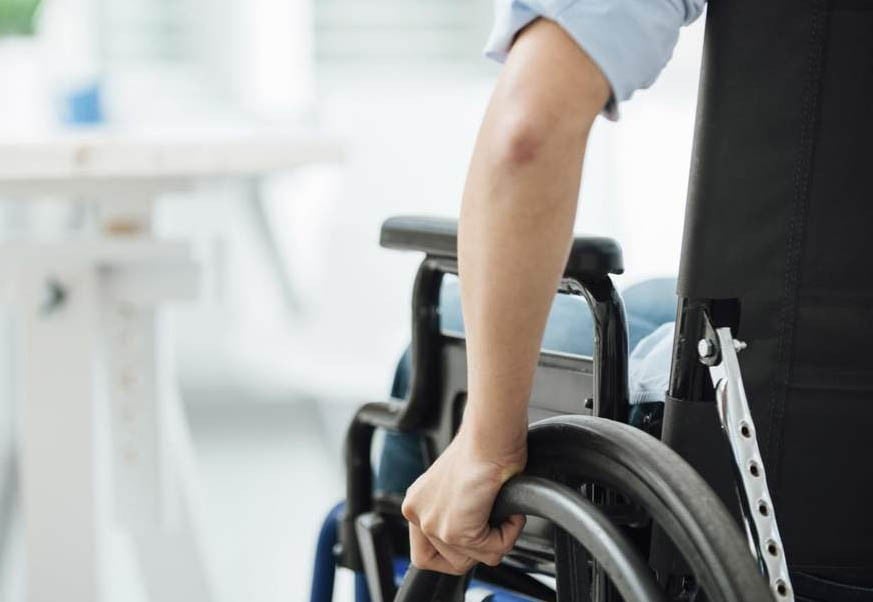
The sole purpose of persons with disabilities is not to provide inspiration rather they are functionally active and productive citizens

It is a given and an established fact that any person who suffers from any disability has odds stacked against him. The problem is further aggravated for people with disabilities living in developing countries like Pakistan where inaccessible environment makes it difficult for them to manage the environment and perform their daily ordinary tasks like going to school or to their places of employment.
A person with a disability is generally considered fit for taking inspiration from by default and disabled people are viewed as if their sole purpose of existence is to provide inspiration. Taken at the face value, there is nothing wrong in getting inspiration from the disabled. The question arises as to whether the whole purpose of the very existence of the disabled people in the cosmic scheme of things is to provide or serve as a source of inspiration? Especially, when images of the disabled people performing ordinary activities like a girl using wheel chair going to school are used on print an electronic media, essentially conveying messages like "Wow, she is so brave, if she could do this, why we cannot do better when we are so blessed".
It was Stella Young, an American disability rights activist who in 2012 termed this phenomenon of taking inspiration from disabled for performing ordinary tasks ‘inspiration porn’. She rightly rejects this notion on three counts.
Firstly, she equates taking inspiration from disabled people for performing ordinary tasks with ‘otherisation’ of persons with disabilities. Interestingly, we ‘otherise’ people on the basis of ethnicity, class, caste, colour, creed and nationality but disability does not differentiate on these grounds.
Secondly, disability rights activists believe that it is not physical impairments but physical and attitudinal barriers created by society that render people disabled and that disabled people can be productive and functionally active once these barriers are removed. She opines that such inspiration shifts focus away from the need to remove these obstacles.
Lastly, she is of the view that taking inspiration from the disabled for performing routine tasks is tantamount to objectification of people with disabilities. Whether it is objectification of women for sexual gratification of men in porn movies or objectification of the disabled for inspiration, such a reductionist thinking ends up satisfying some primeval instincts at the expense of dehumanisation of women and the disabled.
People with disabilities are displayed as objects at fund-raising ceremonies where they are gawked at by potential donors and the participants. Children with disabilities are presented as ‘our nannaiy munnaiy heroes’, singing patriotic songs and performing tableaus. Some glib-tongued master of ceremony whips up emotions of pity and fear amongst those present in the audience while presenting persons with disabilities as sources of inspiration and begs and cajoles people to donate charity for these hapless, pitiable disabled people, reducing them to only fit for charity.
Before you accuse me of painting all doom and gloom disability landscape, hold your breath dear reader for sands have started shifting, especially since mid-90s when Pakistani blind started having access to assistive technology which gave them access to computers. Already we have a lot of blind people who are truly inspirational because of the way they have excelled in their chosen fields.
For example, Saima Saleem, first blind diplomat who achieved 6th position in CSS exam in 2007 has served in Pakistan’s mission to the United Nations in Geneva and represented Pakistan in Human Rights Council with excellence. Due to her expertise, she drafted compliance reports in the field of human rights for Pakistan submitted to the United Nations. Not only this, after venturing into path never tread before, she has paved the way for others and three blind persons, following her footsteps, have joined Foreign Service of Pakistan; Arshad Abbasi is serving as Second Secretary and dealing with important bilateral matters, including Visas in South Africa and Faisal Majeed and Muhammad Yousef are currently undergoing training in Foreign Service Academy. Then there is Huma Shahan, first blind producer serving in Radio Pakistan and Saima Yousef who created her own website way back in 2002 and earns her livelihood through content writing on internet.
What is amazing about these blind girls is that not only they have overcome attitudinal and physical access barriers owing to their blindness but they have, like their many other sighted sisters, shattered barriers that our patriarchal society exclusively reserve for our females.
Then we have inspirational Pakistani blind like Yousef Saleem, first blind civil judge, Sardar Pirzada who has been contributing weekly column for last 11 years to national Urdu language daily, Mahmood-ul-Hassan Khalil who is a podcaster and Malik Shabbir Awan who is pursuing his doctorate in Pakistan Russia relations.
And here is the proverbial last but not the least -- Aqil Sajjad who lost sight when he was in 11th grade, had a tremendous passion for studying physics but could not study in Pakistan because of the lack of equal opportunity environment in our educational institutions. After doing his BBA, he went to the US, completed his bachelor’s in physics with such flying colours that several top universities including Harvard offered him admission for a fully-funded PHD. He went on to complete his doctorate in theoretical particle physics from Harvard, and has now turned the focus of his research to a direction closely related to the new upcoming field of quantum computing.
So, when next time you come across a disabled person going about his daily business please bear in mind that the sole purpose of his or her existence is not to provide you inspiration and instead focus on removing access barriers so that persons with disabilities could become functionally active and productive citizens of the country.